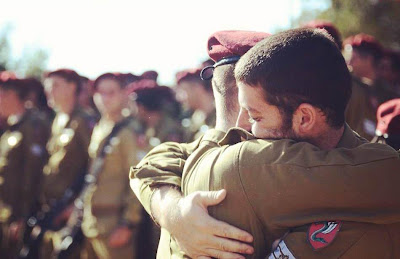The Mossad: Israel’s Eyes and Ears all over the World
 |
| Photo courtesy of the Israel Defense Forces Facebook Page |
In the wake of the terrorist attack on a tour bus carrying Israelis
last week in Burgas, Bulgaria, news agencies reported that the Mossad joined U.S. and local intelligence
services in their attempt to determine the origin of the perpetrators. That information
came as no surprise to those who follow Israel’s intelligence community. Indeed the only surprise was that out
of countless terror attempts that are launched against Israeli interests, this
time the criminals succeeded.
Through its 60 year history, the Mossad has earned the reputation of
being Israel’s eyes and ears all over the world.
Commenting on the attack, an Israeli official said, “the Burgas attack was part of an intensive
wave of terrorist attacks around the world carried out by two distinct organizations,
the Iranian Quds Force, an elite international operations unit within Iran’s
Islamic Revolutionary Guards Corps, and Hezbollah.” “This attack”, he added, “had the modus operandi of the
later.”
This attack occurred two weeks before the opening of the
Olympic games in London. The
Olympics stir terribly mixed emotions in the minds of the Israeli public. This is the 40th anniversary
of the murder of eleven Israeli athletes at the 1972 competition, an event
which lives in infamy. No less
significant is the concern that Israelis visiting London as well as its athletes
competing in the games could be targeted once again by Islamic terrorist
fanatics.
One of the Mossad’s most effective weapons is the element of
surprise and unpredictability. So
no one is privy to what its members are planning. But with rumors and news reports that police are hunting throughout
Europe for the terrorists’ accomplices. What they are doing and how they are
doing it is anybody’s guess, but Israelis have learned to put their trust and
faith in the Mossad.
What we do know is that the Mossad has a number of
departments, of which the so called, “Collections Dept.”, with offices all over
the world and charged with collecting intelligence information, is the
largest. The department consists
of a number of desks which are responsible for specific geographical regions,
directing case officers based at "stations" around the world, and the
agents they control.
Mossad activities and investigation most often take
advantage of some of the most high tech tools available, many of which are
designed and produced by Mossad itself.
One analyst summed up their methods as a combination of cunning
and hi tech, that is the formula for Mossad's success in most projects it
undertakes.
So, as Israelis use the remainder of
the summer vacation time to tour, travel and enjoy a break from the hectic pace
of their normal lives, they will be relying on the Mossad to keep a keen open
eye on the potential dangers that can entrap them, wherever they are and assure
them that they will vacation in security and return to Israel safely.

